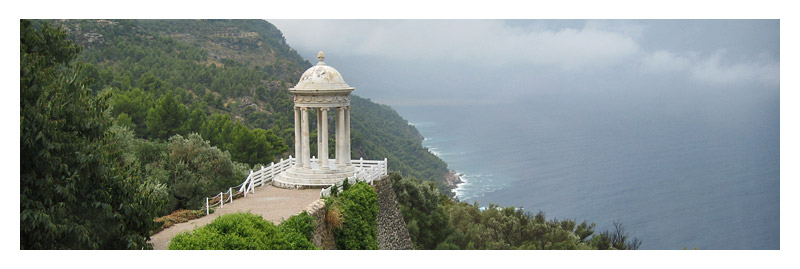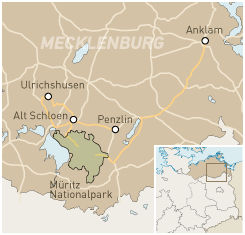
About the films:
"European cultural landscapes" is a journey of discovery, following the historic traces of European agriculture
as we know it today. The series comes to know those people and regions that have been shaped by agriculture for
centuries - and in which agriculture still determines a yet modern life. In the course of this filmic journey,
the two documentaries first and foremost raise one question: In the 21st century, what is the future of agriculture
and of the people who live on it?
Much has changed since then. Numerous wars have wrenched the country, political systems have changed, new villages and industries established themselves, people have migrated or settled. Nowadays, in the Mecklenburg-Western Pomerania of the 21st century, people fight for a new kind of agriculture. They confront new challenges with enthusiasm and curiosity without, at the same time, forgetting where they come from. The film inquires how exactly a mixture of farming, tourism and preservation of culture will shape the following decades. It is here, in Mecklenburg-Western Pomerania, where people are setting the course that might deeply change the country. Is this the end of agriculture?
DISCOVERING MAJORCA is the search for these traces. The film explores the sorrows and fears of the contemporary farmers. It visits olive groves that only survived because Salvator saved them from being cut down. Past and present blend in this fascinating quest for the remaining signs of the archduke's life and work which were destined to preserve the island and to discover new ways for agriculture. Now, Majorca has to face the demands of the 21st century. Can the archduke's spirit dare these modern challenges and save this uniquely cultivated island?
Mecklenburg and the house of Maltzan
For seven hundred centuries, the noble house of Maltzan ruled vast parts of what is now Mecklenburg-Western Pomerania. In the 16th century, when Joachim of Maltzan, baron of Wartenberg and Penzlin, moved into Penzlin castle, his family was one of the most wealthy, influential and powerful in the land north-east of the river Elbe. They owned fiefs all over the North, had the jurisdiction over those peasants who were bound to them by serfdom. Their estate was the cradle of a form of agriculture that produced more than the peasants needed for their own requirements and later contributed considerably to the alimentation of the surrounding bigger towns.Much has changed since then. Numerous wars have wrenched the country, political systems have changed, new villages and industries established themselves, people have migrated or settled. Nowadays, in the Mecklenburg-Western Pomerania of the 21st century, people fight for a new kind of agriculture. They confront new challenges with enthusiasm and curiosity without, at the same time, forgetting where they come from. The film inquires how exactly a mixture of farming, tourism and preservation of culture will shape the following decades. It is here, in Mecklenburg-Western Pomerania, where people are setting the course that might deeply change the country. Is this the end of agriculture?
Discovering Majorca
He could have been one legendary figure of an explorer or an environmentalist - but modernity simply ignored him: Ludwig Salvator, archduke of the house of Habsburg. At the end of the 19th century, he travels all over the Mediterranean and writes books on its flora and fauna, geography and history. His journeys were his escapes - from a rushed and grime modernity as much as from the rigid and constrained court etiquette in Vienna. By chance, the touring Salvator discovers a so far quite unknown island: Majorca. An encounter to change the archduke's life - and Majorcan history - so deeply that it is still traceable on the island, today.DISCOVERING MAJORCA is the search for these traces. The film explores the sorrows and fears of the contemporary farmers. It visits olive groves that only survived because Salvator saved them from being cut down. Past and present blend in this fascinating quest for the remaining signs of the archduke's life and work which were destined to preserve the island and to discover new ways for agriculture. Now, Majorca has to face the demands of the 21st century. Can the archduke's spirit dare these modern challenges and save this uniquely cultivated island?


